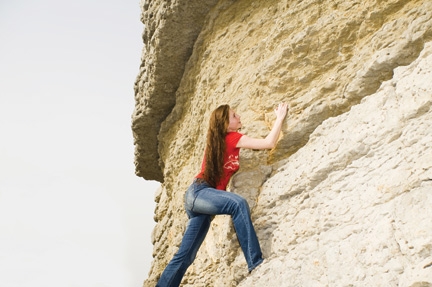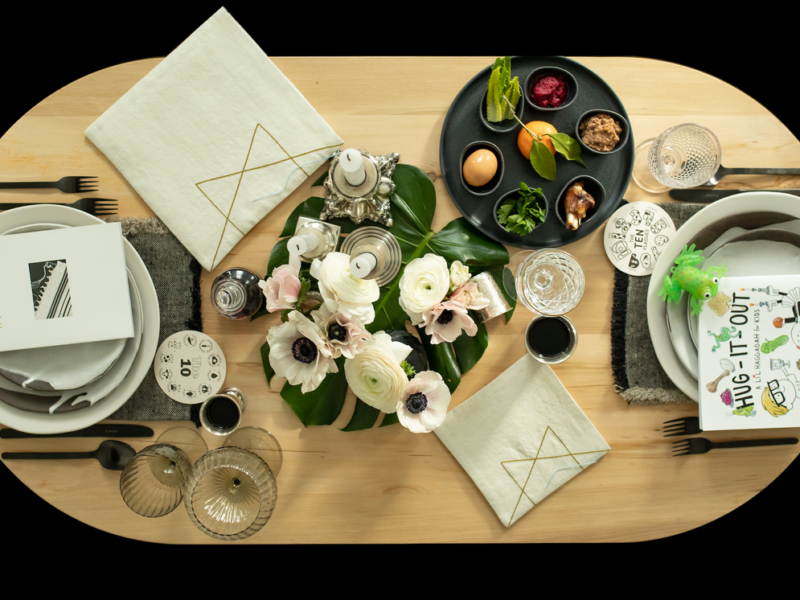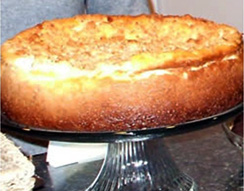It was early morning, and we could tell by the blanket of heat enveloping Grand Teton National Park that the day was going to be a scorcher. We loaded up with water and food, slathered on sunscreen and covered ourselves with enough bug repellent to keep everything, including close friends, away. Ready and raring to hike, my husband and I began the 10-mile trek around Jenny Lake.
And oh, what a hike it was! Our efforts rewarded us with alpine meadows, gushing waterfalls and snowcapped peaks. When we were done, I was tired. I mean, take-off-your-boots-and-fall-into-bed tired. But a cute outdoor café beckoned, and as we sat outside on the deck, rubbing our aching feet, we stared at the Tetons towering in the distance.
A group of young hikers sat at the table next to us. I looked over as the waitress brought them a tray of ice-cold glasses filled with an amber-gold liquid with an orange perched on the edge of each glass. When she came to take our order, I heard myself say: “I’ll have whatever they’re having” – totally clueless as to what they were drinking.
And that was my “Teton moment,” the point in time when a deeper pleasure than that of drowning my thirst became apparent to me.
Because in the simple act of ordering a drink I had never had before, I opened myself up to a sense of possibility. In doing something new and unexpected, I felt excited, even liberated from the same old routine I usually follow (as in a glass of white wine, with ice, even though I know it’s tacky). And the bonus? I found out that hot afternoon that I love wheat beer, although I can never remember its proper name, hefeweizen, and inevitably order heffen schmeffen instead.
When was the last time you did something new or tried something for the very first time? Not something totally scary that would make a mother want to call 911, like bungee jumping or racing a car in the rain. What I’m talking about is simply something you’ve never tried before – like eating a new food, wearing a color you never wear, taking a different route to work or reading a book you wouldn’t normally choose.
We are entering the Jewish New Year of 5773, which is a perfect time to think about this question. How would it feel to put the “new” back into your Jewish new year?
Last week I ran a little experiment along these lines that only confirmed my “new” belief that doing something for the first time can be an emotional game changer. I took my mother, who is well into her eighties, on a shopping junket to “buy a little something.” Two blouses, a striped top and one scarf later, we left Chico’s feeling quite accomplished. Then I popped the question.
“Do you want to blow off dinner and go out for happy hour?”
“What about your father?” she asked with concern. “Won’t he feel badly if we don’t go home?”
I knew my dad was napping and that he would be more than delighted if we had some quality mother-daughter time. So off we trundled to Peppercorns for happy hour.
I took the lead and ordered something my mother had never, ever tasted in her 86 years. And when they brought out the plate of juicy chicken wings smothered in barbecue sauce, her face lit up like that of a small child.
Sipping white wine and giggling like girls, we polished off a dozen of those wings, sauce dripping from our chins. On the way home, my mother couldn’t stop talking about how much fun she had. Later that night, I heard her rave about the afternoon to a friend.
“After all the chickens I’ve cooked, I never knew how good wings could be!” she exclaimed into the phone.
The benefit of experiencing something for the very first time can far exceed the gastronomic. Not only can it add a bit of spice (or, in our case, barbecue sauce) to everyday life, but it opens the door and our hearts to feeling joy, wonder, gratitude and a sense of possibility for the future.
The Jewish tradition has a wonderful way of honoring “firsts” with a blessing called the Shehecheyanu. The Shehecheyanu is really a big shout out to God, “Who has kept us alive, preserved us and brought us to this special time.” On its face, it is a way to thank God for new or extraordinary experiences – such as watching a baby take his or her first steps, seeing a rainbow, moving into a new house or tasting the first vegetables from a garden. On a deeper level, it directs our attention and awareness to our surroundings to help us cultivate the ability to “see” and “feel” the spiritual significance of events in our life, especially when we encounter them for the first time.
Putting the “new” into this Jewish New Year is a win-win deal. It gives us a chance to grow and learn by expanding our horizons, taste buds and experiences, and it nurtures a deeper awareness of how blessed we are to appreciate the newness, potential and beauty that life offers.
Amy Hirshberg Lederman is an award-winning author, nationally syndicated columnist, Jewish educator, public speaker and attorney.






